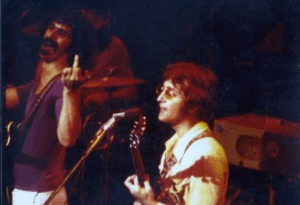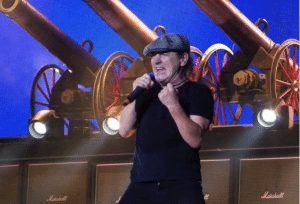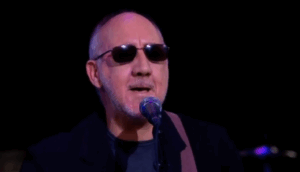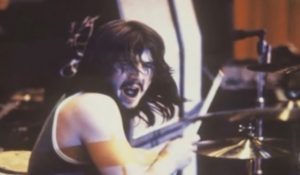The Crucial Career Moments That Made Famous Rockstars Quit
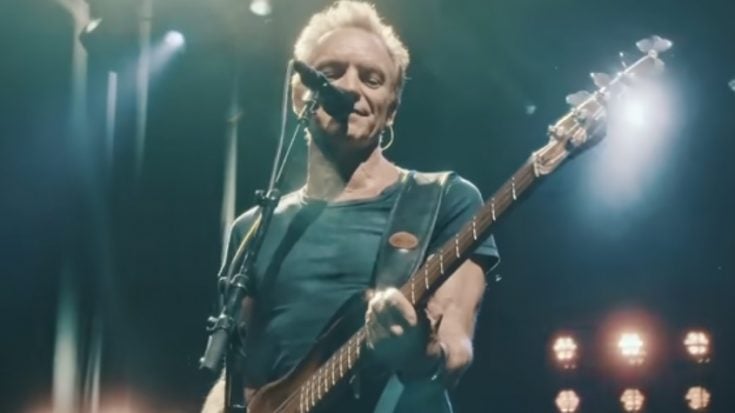
Sting Live in 2017 - Sting / YouTube
Making it as a rockstar might look glamorous on the outside, but behind the scenes, it can be relentless, chaotic, and emotionally draining. Touring schedules stretch relationships thin, creative tensions run high, and egos often collide. Even the most passionate musicians can hit a breaking point, realizing that the cost of staying in the band is greater than the thrill of performing.
Some departures are subtle — a mutual understanding, a quiet retreat from the spotlight. Others erupt like fireworks, fueled by personal disagreements, addiction, or a disillusionment with the industry itself. Whether it’s a clash of visions or a final straw moment, these exits mark a turning point not only in the artist’s life but often in the band’s trajectory too.
This article dives into those pivotal career moments when renowned rock musicians decided to walk away. These weren’t random decisions or temporary breaks — they were exits born from pressure, pain, or the pursuit of something more meaningful. Each story reveals what happens when fame isn’t enough to keep the band together.
Noel Gallagher Finally Snaps When Liam Smashes His Guitar Backstage
The turbulent relationship between Liam and Noel Gallagher was always front and center during Oasis’s rise. Their dynamic made for compelling tabloid fodder and even fueled their creative chemistry, but that balance was never sustainable. In August 2009, the band’s volatility exploded backstage before a show, where Liam allegedly destroyed one of Noel’s guitars during a heated argument.
That moment proved to be the final straw. Noel didn’t just cool off — he walked away from the band altogether. His announcement confirmed what many fans feared: Oasis was done, at least with the classic lineup. It wasn’t a quiet or civil exit either. For years following the split, the brothers publicly traded jabs and insults, keeping their feud alive in headlines.
Despite the bitterness, time seems to have softened things. In a surprising turn, the Gallaghers are now gearing up for a reunion tour in 2025. Whether it’s nostalgia, maturity, or unfinished business that’s bringing them back together, the fact remains: one shattered guitar backstage ended an era — and might just begin a new one.
View this post on Instagram
Sting Couldn’t Stand Walking On Eggshells In The Police Anymore
Being in a band that constantly tops the charts doesn’t always mean the people involved are getting along. By the time The Police wrapped up their Synchronicity tour in 1984, frontman Sting had reached his limit. Tensions with drummer Stewart Copeland had been brewing for years, and the atmosphere within the trio had become unbearable.
According to accounts from the band, the constant friction made collaboration feel forced. Sting allegedly told his bandmates they had nothing in common before walking out for good. He didn’t just leave the tour bus — he left behind a massively successful band to pursue a solo career that offered more control and creative freedom.
That decision, while difficult, marked a defining turning point in Sting’s life. He quickly reinvented himself as a solo artist and never looked back. Although The Police would occasionally reunite for select events, the original dynamic was never fully revived. For Sting, quitting was not just a reaction to conflict — it was a necessary reset.
https://twitter.com/ThePoliceBand/status/1937192920479629492
Randy Meisner Quits The Eagles After Growing Weary Of Fame And Fighting
Being in one of the most iconic American rock bands of the 1970s wasn’t enough to keep Randy Meisner in the fold. A founding member of the Eagles, Meisner often felt out of place in the group and uncomfortable being thrust into the spotlight. As the band grew more famous, so did the pressure — and for Meisner, that pressure was anything but energizing.
While the official reason given for his 1977 departure was “exhaustion,” the deeper story points to ongoing interpersonal conflict. Meisner later admitted that constant bickering and internal struggles drained him emotionally. The fast-paced lifestyle of success didn’t leave much room for peace, and eventually, he decided to step away entirely.
His exit didn’t cause a public spectacle, but it carried weight behind the scenes. Meisner’s departure shifted the dynamic within the Eagles and highlighted how not every musician thrives in the spotlight. Sometimes, walking away quietly speaks louder than any press release or dramatic onstage moment ever could.
View this post on Instagram
The Everly Brothers Culminated In Phil Smashing A Guitar Due To Frustration With Don
Few breakups in rock history are as legendary as the one that ended The Everly Brothers. In 1973, during a show in Santa Ana, California, things came to a head. Don Everly showed up in no condition to perform, reportedly high and drunk, and struggled to get through the songs. For Phil, it was the final embarrassment in a long list of growing tensions.
Mid-performance, Phil exploded with frustration. He smashed his guitar in front of the crowd and stormed offstage, leaving fans stunned and effectively ending the sibling duo on the spot. That act of destruction wasn’t just theater — it was the result of years of resentment, fatigue, and failed communication between two brothers who once harmonized perfectly.
The fallout was severe. Phil and Don didn’t speak for ten years following the incident and only briefly reunited afterward. Their professional partnership was never the same. For Phil, quitting wasn’t a carefully planned decision — it was a visceral reaction to the personal and professional weight that had built up over time.





